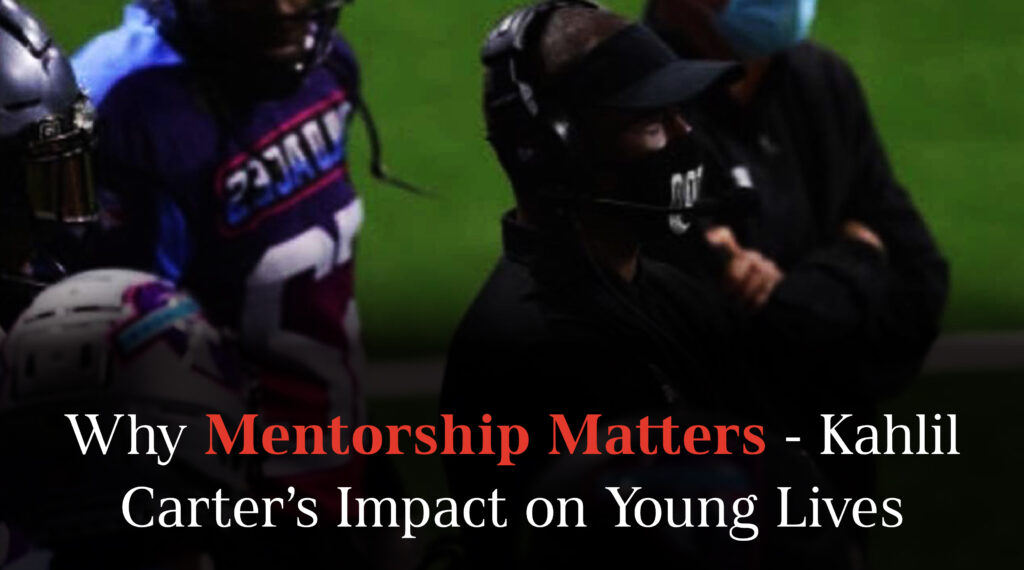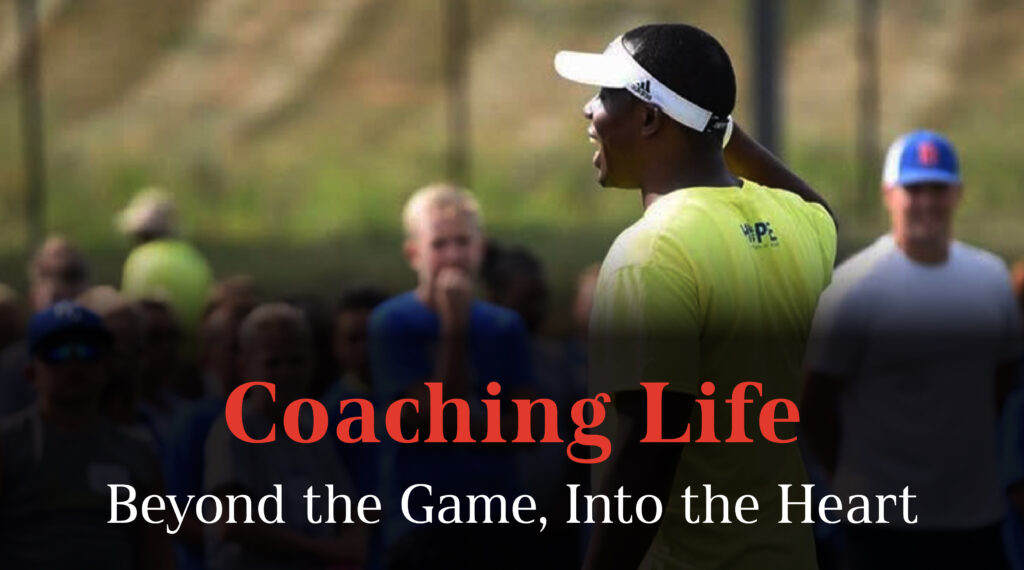In the high-stakes world of professional sports and beyond, success is often measured by victories, accolades, and tangible results. Yet, beneath the surface of these achievements lies a deeper foundation that sustains long-term excellence: humility and professionalism. These qualities, as exemplified by Kahlil Carter—a seasoned football coach and former professional athlete—are not optional attributes but essential pillars for anyone aiming to build a lasting legacy. Drawing from Carter’s remarkable journey, from his playing days in the NFL and CFL to his coaching triumphs with teams like the Montreal Alouettes and Calgary Stampeders, this blog explores why humility and professionalism are non-negotiable for enduring success in any career.
The Essence of Humility in Leadership
Humility is often misunderstood as weakness or self-deprecation, but in reality, it is a strength that fosters growth, collaboration, and resilience. For Kahlil Carter, humility has been a guiding principle throughout his multifaceted career. As a player, he earned All-League honors four times and was named Defensive Player of the Year in 2003, yet he never let these accomplishments inflate his ego. Instead, he channeled his success into a relentless pursuit of improvement, transitioning from a standout athlete to a coach who has mentored 21 All-League players over a 12-year coaching tenure.
Carter’s book, The iN Crowd: Life, Legacy, Leadership, underscores this mindset. He reflects on moments where his confidence was mistaken for arrogance, noting, “I’ve found myself at odds with enough people to realize that there may be a part of me still struggling with the desire to be too much of something.” This self-awareness is a hallmark of humility—it’s the ability to recognize one’s flaws, seek feedback, and adjust accordingly. In a corporate or professional setting, this translates to leaders who listen to their teams, admit mistakes, and prioritize collective success over personal glory.
Why is this non-negotiable? Because humility builds trust. Whether coaching a high school team to a state championship or leading the Montreal Alouettes’ defense, Carter understood that players and colleagues respond best to leaders who value their contributions. In a business context, a humble leader inspires loyalty, encourages innovation, and creates an environment where individuals thrive. Without humility, ego can erode relationships, stifle collaboration, and ultimately undermine long-term success.
Professionalism
Professionalism complements humility by establishing a standard of conduct that earns respect and credibility. Kahlil Carter’s career is a testament to this principle. As a coach, he has been described by Gary Swenson, a veteran high school football coach, as “honest, dependable, passionate, and enthusiastic,” with a character “beyond reproach.” These traits didn’t emerge by accident—they were cultivated through years of showing up prepared, respecting others, and maintaining composure under pressure.
In The iN Crowd, Carter addresses the nuances of professionalism, particularly for African Americans in sports and other industries. He writes, “As an African American, I have noticed that certain behaviors or mannerisms can be deemed unprofessional, even if they are acceptable to others. It seems that different individuals are held to different standards.” This observation highlights a critical reality: professionalism often requires navigating cultural expectations and biases with grace and precision. For Carter, this meant being punctual, prepared, and adaptable—qualities that allowed him to coach at every level, from high school to the CFL.
In a corporate setting, professionalism is equally vital. It’s the difference between a leader who commands respect through consistency and one who loses it through erratic behavior. Carter’s ability to “handle and adapt to any level of football in any situation,” as Swenson notes, mirrors the adaptability required in business—whether managing a team, meeting deadlines, or handling client expectations. Without professionalism, even the most talented individuals risk tarnishing their reputation and jeopardizing their career trajectory.
The Intersection of Humility and Professionalism
The true power of these qualities lies in their synergy. Humility keeps a leader grounded, while professionalism ensures they project competence and reliability. Kahlil Carter’s journey illustrates this intersection beautifully. As a player, he broke barriers by becoming one of the first AF2 athletes to sign with an NFL team, the Buffalo Bills, in 2003. This milestone wasn’t just a product of talent—it required the humility to learn from every experience and the professionalism to seize opportunities with discipline.
As a coach, Carter’s success—leading teams to back-to-back championships in 2011 and 2012, and appearing in multiple CFL Finals—further demonstrates this blend. He notes in his book, “True humility requires acknowledging and respecting the authority placed above you.” This mindset allowed him to work effectively under head coaches, collaborate with peers, and mentor players, all while maintaining a professional demeanor. His ability to “game plan and scheme” with savant-like precision, as Swenson describes, reflects a professional commitment to excellence, tempered by the humility to refine his approach based on outcomes.
For professionals in any field, this intersection is a roadmap to success. Humility ensures you remain teachable, while professionalism ensures your efforts are recognized. Together, they create a reputation that withstands challenges and opens doors to new opportunities.
Why They’re Non-Negotiable
The stakes of lacking humility and professionalism are high. Carter warns in The iN Crowd that “deviating from these two qualities could potentially cost you a job.” In sports, a coach with an inflated ego or unprofessional conduct risks alienating players and losing credibility with management. In business, a leader who fails to embody these traits may see their team’s morale plummet, their projects falter, or their career stall. The consequences are not hypothetical—they’re immediate and tangible.
Consider Carter’s reflections on social media: “It’s crucial to maintain the same persona online as you do as a coach because you are always representing the team.” A single lapse in professionalism—whether a careless comment or a display of arrogance—can unravel years of hard work. This is especially true in today’s interconnected world, where every action is scrutinized. Humility and professionalism aren’t just nice-to-haves; they’re safeguards against self-inflicted setbacks.
Moreover, these qualities are non-negotiable because they sustain success over time. Kahlil Carter’s 12-year coaching career, marked by 21 All-League players and multiple championship appearances, didn’t happen by chance. It was the result of consistent humility—acknowledging his players’ potential—and unwavering professionalism—delivering results with integrity. In a corporate context, this longevity translates to leaders who build enduring teams, foster innovation, and leave a legacy of impact rather than fleeting achievements.
Lessons from Kahlil Carter’s SWAAG Philosophy
Carter’s personal motto, SWAAG—Students Working toward Academic and Athletic Greatness, Serving a Wonderful and Amazing God, and How You Wear Your Confidence and Style—encapsulates the fusion of humility and professionalism. The first pillar emphasizes the humility of lifelong learning, balancing academics and athletics with dedication. The second reflects a spiritual grounding that keeps ego in check, a cornerstone of Carter’s approach. The third ties it all together with professionalism—wearing confidence with style, not arrogance.
This philosophy isn’t just for athletes; it’s a universal framework. Professionals in any industry can adopt SWAAG by committing to growth (humility), grounding their work in purpose (faith), and presenting themselves with poise (professionalism). As Carter writes, “Confidence is your uniform, and style is how you show up every day ready to win.” This mindset ensures that success isn’t a fluke—it’s a deliberate, sustainable outcome.
Applying Humility and Professionalism in Your Career
So, how can you embody these non-negotiable traits? Start with self-reflection, a practice Carter champions. Ask yourself: Am I open to feedback? Do I respect those above and below me? Then, commit to professionalism in action—be punctual, prepared, and respectful, even under pressure. As Carter advises, “It takes more inner strength to humble oneself and remain silent at times than to arrogantly express one’s opinions.” This discipline separates the transient from the triumphant.
Finally, draw inspiration from role models like Kahlil Carter. Visit Website to explore his journey and insights further. His story proves that humility and professionalism aren’t just virtues—they’re the bedrock of a career that endures.
Conclusion
In a world obsessed with quick wins and self-promotion, Kahlil Carter’s life and leadership remind us that lasting success demands more. Humility keeps us grounded, and professionalism propels us forward. Together, they forge a path to excellence that withstands time and adversity. Whether you’re an athlete, a coach, or a professional in any field, these qualities are non-negotiable—because true victory isn’t just about winning today, but thriving tomorrow. Embrace them, as Carter has, and build a legacy worth celebrating.


